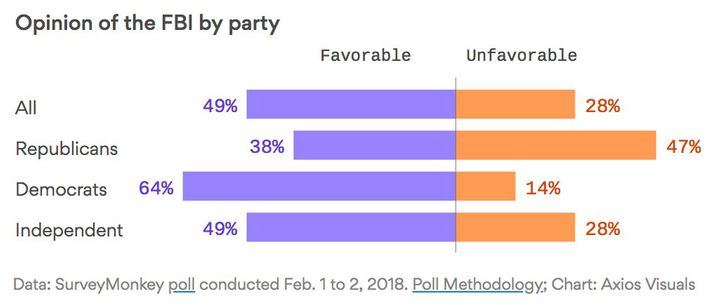
In 2009, hackers stole 3,000 emails and other documents from the Climate Research Unit at the University of East Anglia. Right-wing climate-science skeptics quickly seized upon snippets of conversation contained within to paint a lurid picture of scientists conspiring to falsify the data in order to panic the world into adopting their nefarious statist agenda.
Mainstream news organizations, presented with a legitimate news story — the emails were, after all, real — took the revelations largely at face value. “Hundreds of private e-mail messages and documents hacked from a computer server at a British university are causing a stir among global warming skeptics, who say they show that climate scientists conspired to overstate the case for a human influence on climate change,” read the lede to the initial New York Times account, which reported some of the shocking disclosures. “In one e-mail exchange, a scientist writes of using a statistical ‘trick’ in a chart illustrating a recent sharp warming trend. In another, a scientist refers to climate skeptics as ‘idiots.’” The Times included some responses from the hacked scientists, and noted that the story was “bound to inflame the public debate.”
Conservative media predictably responded with less caution. This was absolute proof of what the right had been saying all along. “The more than 3,000 emails and documents from the University of East Anglia’s Climate Research Unit (CRU) that have found their way to the Internet have blown the lid off the ‘science’ of manmade global warming,” exulted Wall Street Journal columnist Kimberley Strassel. The scandal immediately hardened into a settled truth among the conservative faithful. A few months later, when Donald Trump conducted one of his frequent call-ins to Fox News, he dismissed climate science on the basis of “the memorandum or whatever it was that they found a few months ago was devastating by the leaders of the movement of global warming.”
Five subsequent investigations all included that the hacked scientists had not engaged in any wrongdoing. Despite the insults they privately shared about climate-science skeptics, and in spite of a couple of putatively damning references to statistical illusions, they had not manipulated their data. And yet the corrections never reached into conservative media, which has clung to its initial, breathless conclusion.
The FBI today finds itself in the same baffling position that climate scientists occupied in 2009. The memo written by Republican representative Devin Nunes, and published on Friday, is serving the function of the hacked emails. (Indeed, one of the sources it uses is private text messages between two FBI agents who were having an affair.) The memo, which had circulated in private, obtained the tantalizing aura of the forbidden and was whispered to contain tantalizing revelations. The memo, they said, revealed a conspiracy that was “absolutely shocking,” “sickening,” “jaw-dropping” and “worse than Watergate.” Mainstream news sources dutifully conveyed the story — there undoubtedly was a memo and it did contain serious accusations — and the competing claims surrounding it.
Once again, as the facts have emerged in full, the underlying conclusions hyped by conservatives have melted away. The memo does not discredit the Russia investigation. It charges that one of the figures in the investigation, Carter Page, had been surveilled in part on the basis of a dossier that had been funded by Democrats, and that the FBI had not adequately disclosed this to the judges who approved the surveillance. If true, the accusation would be legally unimportant (courts frequently approve surveillance on the basis of biased sources), and in any case, the FBI had been investigating Page for years before. The minuscule claim turns out not to be correct anyway — as the Washington Post reports, the court that approved the surveillance of Page “was aware that some of the information underpinning the warrant request was paid for by a political entity.”
But, also like in Climategate, the collapse of the factual underpinnings beneath the conservatives’ claims left no impression on them whatsoever. There is no sense of chastening or remorse on the right. To the contrary, Republicans retain all of their initial fervor to use the memo to prosecute their targets in the deep state. Donald Trump Jr. calls the memo “sweet revenge.” Sean Hannity is renewing his demands for the Robert Mueller probe to be shut down in the wake of the memo’s findings. House Republicans are promising that more memos will come, and Kimberley Strassel (who has played the same credulous role in both Climategate and the memo episode) is already teasing new shocking findings to follow.
It might seem perverse that Republicans would respond this way in the wake of a high-profile humiliation. Yet, from their perspective, it is not a humiliation at all. Republican voters have absorbed the intended message. The rank and file, which once considered support for law enforcement a definitional trait, has quickly turned against the FBI:

Various news reports have conveyed the sense of dismay and shock within the FBI, a bureau that historically tends to attract disproportionately conservative staff and leadership. (The FBI has never had a Democratic director.) The Russia investigation has forced it into the same disorienting circumstance as other institutions that conservatives have needed to discredit, like the news media, scientists, academia, and budget forecasters.
Cultivating distrust in institutions that are designed to play a neutral, mediating role is one of the central functions of conservative politics. It is a game that conservatives know how to win, because they are waging asymmetric warfare. There is no good way for an institution to withstand partisan attack when its existence relies upon maintaining some distance from partisanship.
For one thing, there is almost always at least some factual element of truth to attacks on fairness. No institution is perfectly clairvoyant. Climate scientists, budget forecasters, and news reporters make errors of analysis and, especially, prediction. Some of the people in those institutions will inevitably express an ill-considered thought that leaks out into public. Even if the errors balance out, relentless attention to the errors in one direction will produce the appearance of bias. Imagine a highlight video that shows all of the bad officiating calls that hurt your favorite team, while ignoring all of the bad calls that helped them. A 1993 Washington Post story described followers of television evangelists as “largely poor, uneducated and easy to command.” The newspaper apologized almost immediately, but conservatives have continued to recirculate the quote for the last 25 years as proof of liberal-media bias. Scientific models have measurement errors or disagree with one another.
An institution that attempts to prove its good faith by opening itself to criticism and acknowledging failure will merely provide more grist for its bad-faith critics. On the other hand, if the institution closes itself off to introspection, it risks taking on the partisan qualities it was accused of having and becoming a mirror image of its critics. There is no way to refute bad-faith criticism. The mainstream news media has spent decades trying to disarm Republican attacks on its credibility. The Congressional Budget Office adopted “dynamic scoring” that conservatives demanded.
None of these concessions have met with even cursory approval. The New York Times hounded Hillary Clinton with relentless coverage of her genuine but relatively pedestrian offenses, and published a historically terrible and false story in late October asserting that the FBI had “no clear link” between Russian election interference and the Trump campaign. Republicans still dismiss every unflattering report in the Times as liberal fake news — indeed, their voters are so trained to believe this, the mere mention of the words “New York Times” is sufficient to activate their skepticism. The CBO used favorable growth assumptions, and when it still found that the Republican tax-cut plan would increase the deficit by a trillion dollars, the entire party, moderates included, dismissed its findings.
Indeed, the FBI finds itself in its current straits in part because it’s already attempted to placate conservative distrust. In 2016, the bureau broke its policy and publicized its investigation of Hillary Clinton because the leadership feared the withering attacks they would face from the congressional GOP after a presumed Clinton victory. (They had no such fear of Democrats, which is why they kept their investigation of Trump’s connections with Russia secret before the election.) Trump even used the FBI’s demonstrated unfairness toward Clinton as a pretext to fire its director last year.
At best, the Republican attacks will clear the way for Donald Trump to close down the Mueller probe or turn federal law enforcement into a weapon of partisan control. At worst, they will supply his followers (including a critical mass of congressional Republicans) with a rationale for ignoring any incriminating conclusions the investigation yields. The FBI has no idea what the Republicans have in store for it, and no way out of the trap that awaits it.






























